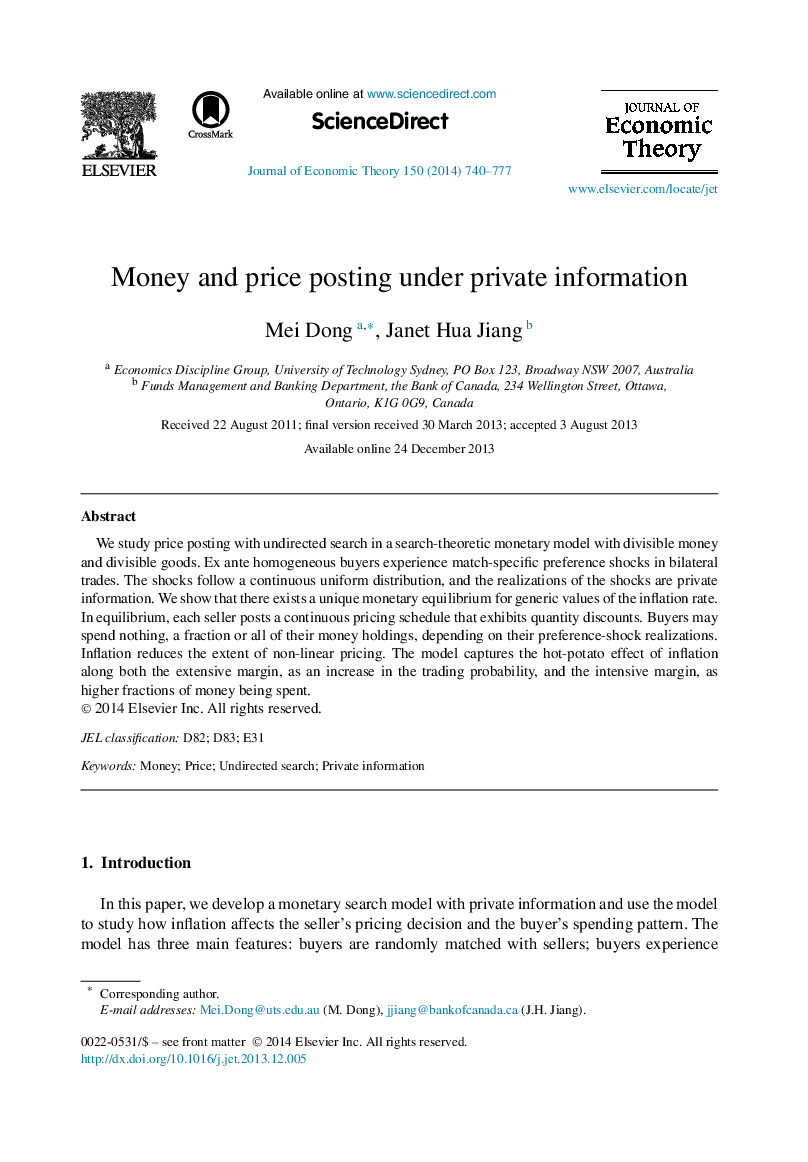| Article ID | Journal | Published Year | Pages | File Type |
|---|---|---|---|---|
| 7359877 | Journal of Economic Theory | 2014 | 38 Pages |
Abstract
We study price posting with undirected search in a search-theoretic monetary model with divisible money and divisible goods. Ex ante homogeneous buyers experience match-specific preference shocks in bilateral trades. The shocks follow a continuous uniform distribution, and the realizations of the shocks are private information. We show that there exists a unique monetary equilibrium for generic values of the inflation rate. In equilibrium, each seller posts a continuous pricing schedule that exhibits quantity discounts. Buyers may spend nothing, a fraction or all of their money holdings, depending on their preference-shock realizations. Inflation reduces the extent of non-linear pricing. The model captures the hot-potato effect of inflation along both the extensive margin, as an increase in the trading probability, and the intensive margin, as higher fractions of money being spent.
Related Topics
Social Sciences and Humanities
Economics, Econometrics and Finance
Economics and Econometrics
Authors
Mei Dong, Janet Hua Jiang,
